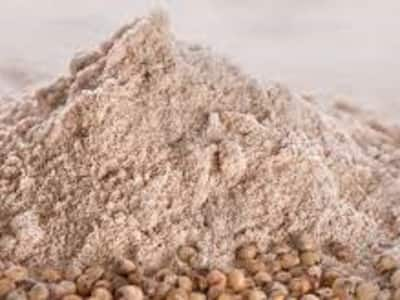Don’t Miss Out on the Latest Updates.
Subscribe to Our Newsletter Today!
Eating Sorghum Or Jowar May Help Boost Immunity During Covid Pandemic: Experts

Sorghum is also high in fibre which helps improve our digestive system. Below are some more research-backed benefits of Jowar you need to know.
Eating sorghum, popularly known as Jowar in India, may help your body fight against coronavirus, by boosting your immunity. This gluten free grain is also a healthy alternative to 'maida' or all-purpose flour, suggest studies carried out at the National Sugar Institute (NSI), Kanpur.
To assess the potential of Jowar, the NSI Kanpur in collaboration with ICAR-IIMR, Hyderabad has been conducting studies for the last two years at the institute farm. Results showed that while the juice from stem/stalk of the crop can be utilised for production of ethanol, jaggery and nutritive low calorie sugar syrup, the grains can be used extensively as a healthier flour, replacing 'maida' or 'wheat flour'.
According to NSI director, Prof Narendra Mohan, sorghum is rich in protein, iron and copper, and thus helps in cellular function and repair. It also contains rich quantity of potassium and phosphorus, which helps lower cholesterol and manage high blood pressure.
Also Read
The high-fibre content in sorghum helps improve the digestive system, Prof Mohan said, adding that the grain provides almost 44 per cent of the required daily intake of fibre.
Include sorghum to your diet forstronger immune system
Keeping your immune system strong is the best way to prevent any viral or other diseases. Prof Mohan suggested including sorghum to your diet for better immunity during the Covid-19 pandemic. "The vitamins C present in the sorghum grain also helps boost our levels of immunity and thus sorghum appears to be an important ingredient of our diet in the current times," IANS quoted the expert as saying.
This crop can benefit everyone. While the farmers can get a better price of the produce by utilising each part of the crop, the country as a whole can get more ethanol along with a healthier diet to reduce malnutrition, improving digestive system and immunity, Prof Mohan added.
Sorghum is a short duration crop, requiring just 4-5 months to harvest as well as less water. Because it can be grown as an intercrop with sugarcane, farmers can increase their income further per acre of land.
At the NSI farm, the researchers have cultivated and tested five sweet sorghum varieties that are considered suitable for sub-tropical region: CSH 22S, SSV 84, SSV 74, Phlue Vasundhara and ICSSH 28.
Why is white flour bad for health?
White flour or maida is basically wheat flour that is highly refined. The refining process strips away many precious nutrients like dietary fiber, B vitamins, iron, magnesium, and vitamin E from. Not just refined flour is depleted in nutrients, but it may also contain harmful additives.
The high starch content and lack of fiber in refined flour causes a rapid increase in blood sugar when consumed. Over time, the hyperglycemic and hyperinsulinemic effects of refined flour increases the risk of chronic diseases such as type 2 diabetes and cardiovascular disease.
Thus, regularly consumption of refined flour is linked to increased risk for weight gain, obesity, type 2 diabetes, insulin resistance and elevated cholesterol.


